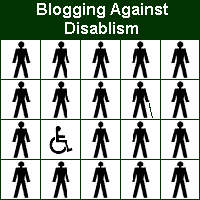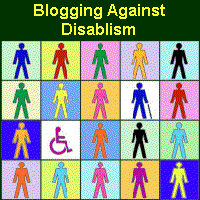Freedom of speech has never been the freedom to speak without consequence. Freedom of speech means freedom from interference, harassment, intimidation, imprisonment or violence. But speech, like anything we do, has real life consequences. There is no freedom of speech if people are allowed to talk and others are not allowed to object to what they've said.
This weekend, famous philosopher, author and university professor Roger Scruton was
relegated to the obscurity of the BBC News website (link to text) and BBC Radio 4 (link to audio) to
talk about freedom of speech. He seems about to explore the potential ills of criminalising hate speech before meandering in an entirely different direction, concluding.
“Of course, we have moved on a bit from the Middle Ages. It is not the man who is assassinated now, but only his character. But the effect is the same. Free discussion is being everywhere shut down, so that we will never know who is right - the heretics, or those who try to silence them.”
I
was obliged to study Roger Scuton's work as a young philosophy
student, so I feel qualified to translate:
“Of course, we have moved on a bit from the Middle Ages. Outspoken men I personally relate to don't get assassinated, but instead the views of other kinds of people are heard alongside ours, which can make us look ridiculous. Free discussion is everywhere, and views like mine face powerful and articulate opposition.”
Freedom of speech means that Roger
Scruton should be free to express his views without harassment, intimidation, violence and so forth. He has arguably earned the right to have far
greater access to public platforms - television appearances,
newspaper articles and so on – than someone like me. I might
disagree with pretty much everything he stands for but that's not a
problem – here he is, right now, helping me explain an idea to you. Thanks Rodge! .
What
Roger Scruton is absolutely not entitled to is to express his views
without criticism. For example, he describes how homophobia was invented (as most
words were at some point) and is used to ruthlessly attack, um, homophobia:
“The orthodox liberal view is that homosexuality is innate and guiltless. Like the Islamists, the advocates of this view have invented a phobia with which to denounce their opponents. Deviate in the smallest matter from the orthodoxy, and you will be accused of homophobia and, although this is not yet a crime, it is accompanied, especially for those with any kind of public office, by real social costs. “
And
yet, here is Roger Scruton, on the BBC News website, implying opinions that are already in the public record; to his credit, he overcame much of his earlier prejudice, but he still objects to same-sex marriage or adoption. And yet this weekend, he was still being published on the BBC News website in a piece to be broadcast on the radio. When Scruton speaks of “real social costs”, I can only assume his lesbian friend didn't invite him to her wedding.
(Incidentally, Scruton is the co-author of the article Same-sex marriage is homophobic. So he's right about at least some people abusing the word homophobia for the sake of their own particular arguments.)
This
is how history works. When I was a kid, homophobic views were widespread and
freely expressed. In 1989, Scruton himself wrote that society was correct in instilling a revulsion of homosexuality in children - some of his contemporaries said and wrote far worse. Section 28, which effectively prohibited the discussion of homosexuality in schools, was not repealed until four years after I had left school. When I was growing up, someone who supported
same-sex marriage had the right to say so – they certainly wouldn't
have been arrested for it - but they would have struggled to get any kind
of platform outside LGBT magazines. Gay and bisexual teachers, let alone people in
positions of more significant power and status were still frequently
closeted. That's real social costs.
But our society had an argument and the argument was won. Not that we have achieved consensus, but most people either support or are indifferent towards same sex marriage. Conscientious people like Scruton have found at least some of their prejudice to be intellectually unsustainable. This is
because gender doesn't make any moral difference to sex, romantic
partnership or the creation of families. Homophobia – including, violent homophobia – still exists within our culture, although it is much more often subtle and implicit. Scruton's views are in the minority. He still has a very loud voice.
He just can't expect such a great applause whenever he uses it.
To say so isn't silencing him. To bombard him with abusive messages would be silencing. To threaten his peace or his person
would be silencing. To hack the BBC News website and take down his
article would be silencing. He's not being silenced.
Scruton may well have been harassed about his views, but he doesn't describe this. He doesn't describe any specific negative effect of speaking out until he arrives at Nobel-prize winning biochemist Tim Hunt. Like the rest of us, Hunt was not entitled to say whatever he liked without his words having consequences. His character was not
assassinated – he made a fool of himself, just as surely as if he had turned up to work drunk in his underpants. Nobody accused him of a
crime or of any underhand activity other than undermining the status
of women in science with sexist jokes said in public.
"A lifetime of distinguished creative work has ended in ruin." is a wild exaggeration; the chap resigned at the tender age of 72, he may well work again and few history books will record anything but his contribution to science. We're still talking about it now because it happened this year and stirred up a lot of existing frustration about the treatment of women in science. To my knowledge, Hunt was not harassed or threatened, but merely laughed at. A lot. He had claimed female colleagues kept falling in love with him. It's no hanging offence, but no-one can say that and not look like a prong.
It's
funny Scruton's piece should be published in a week that a very
different heretic (and one who has done far more to earn that title)
Germaine Greer made a stand for the voiceless by appearing on fringe
news outlet, BBC Newsnight, complaining about a petition to stop her
talking at Cardiff University, because of her widely published
transphobic views. This was a petition – people exercising their own freedom of speech - asking that she should be no-platformed. Student Unions are not obliged to provide platforms and audiences for anyone who feels they have something to say.
Cardiff University said they did not endorsed Greer's views but would not stop her speaking. Greer decided not to go. She would have been met by a far smaller audience than
that of Newsnight or the many other news outlets who have published
both her complaints about Free Speech, as well as her hateful remarks about
transgender women in the last few days (including the front page of
the BBC News website, up and left a bit from Scruton).
Greer has the right to say what she likes, but not wherever she likes. Nobody has, but Greer has far more opportunities to air her views to huge numbers of people than I ever will. What Greer has experienced is, ironically, exactly the same minimal harm she claims to be committing against transgender people when she denies their very existence; hurt feelings.
The
fact that people with as diverse views as Greer and Scruton could be
making these complaints and so loudly, when nobody who objects to
their views is being heard (Show me a prominent article about the
ills of homophobia this weekend. Where is the interview with Rachel Melhuish who set up the petition against Greer's talk?),
suggests something about the way freedom of speech currently works in
our culture.
So let's talk about actual
silencing. I write quite a lot about discriminatory language and the
media and much of this comes down to people shouldn't say that.
Language is tremendously important. The way women, men and minorities are
spoken about and represented is tremendously important.
When I say, “People shouldn't say that.”
I absolutely mean it. This isn't the same as saying "People shouldn't be allowed to say that." let alone "People should be arrested for saying that."
However, people
should be criticised for saying foolish things - this is part of freedom of speech. Sometimes, public
figures should lose their jobs over the things they say – the rest
of us run exactly the same risk and are likely to meet with far less
tolerance. However, fundamentally, I want to win these arguments. I
want to help persuade folk to treat others as they would like to be
treated.
This has limits and those limits should be obvious. I
didn't think very hard when I became the Goldfish with my painting of
a goldfish as an avatar, but over the years I've become acutely aware
of the way that I escape the abuse that other women with feminine
handles and photos of themselves routinely experience when they talk
about any political issue. Young women, women of colour, women
pictured wearing headscarves and trans women are targeted with
particular bile and there's reason to believe they have less recourse to justice.
Harassment
and abuse are always unacceptable and should be far more vigorously
prosecuted. These things force victims to change their behaviour and
create a genuine obstacle to speaking out. For some minorities –
particularly trans people and Muslim women – the high probability
of receiving abuse any time they draw attention to themselves may be
enough to keep them quiet.
Criticism - even unreasonable, lazy or incoherent criticism - doesn't have this effect. Nobody wants to be called a bigot, and Scruton has personally demonstrated that not everyone uses words like homophobia (or racism, sexism etc.) in a consistent and coherent way, but being told one's speech is prejudiced cannot be compared to threats
of violence, personal and sexualised insults and so on.
Meanwhile, this last week, while Scruton and Greer were speaking without opposition in the national press, it was announced that there will be a new register, like the Sex Offenders Register, which would prevent anyone with a conviction or civil order for "extremism" from working with children or young people. Nobody is clear quite what "extremism" is. We already have disasters like the Prevent Strategy which basically monitors young Muslims for signs of alienation or radicalisation, including what they say in public. And earlier this month, not at all famous Bahar Mustafa was charged for offenses apparently relating to her use of the hashtag #killallwhitemen on Twitter*, while the very famous Katie Hopkins, who wrote of refugees as "cockroaches" who should be gunned down or drowned before they reached Europe, faces no criminal action.
Obviously, I don't mean to suggest that we should only care about certain kinds of silencing, or extreme cases where people are menaced into silence. Nor do I believe that one has no right to complain of ill treatment if someone else is experiencing worse (someone always is). However, I do think it is worth observing that there are patterns in the people and opinions which do get sidelined, shouted down or even draw the attention of the criminal justice system.
Freedom of speech is a vital aspect of a free society and something we may always have to fight for. To reduce it to the freedom for powerful people to express their prejudices without meeting the disapproval and criticism of others only distracts from and undermines the real battle taking place.
* The nature of this kind of case is that the press cannot report exactly what Bahar Mustafa said that was so offensive, given that it is being described as "grossly offensive" in the charges. It may be that she did say something absolutely outrageous (#killallwhitemen is very difficult to take seriously).








